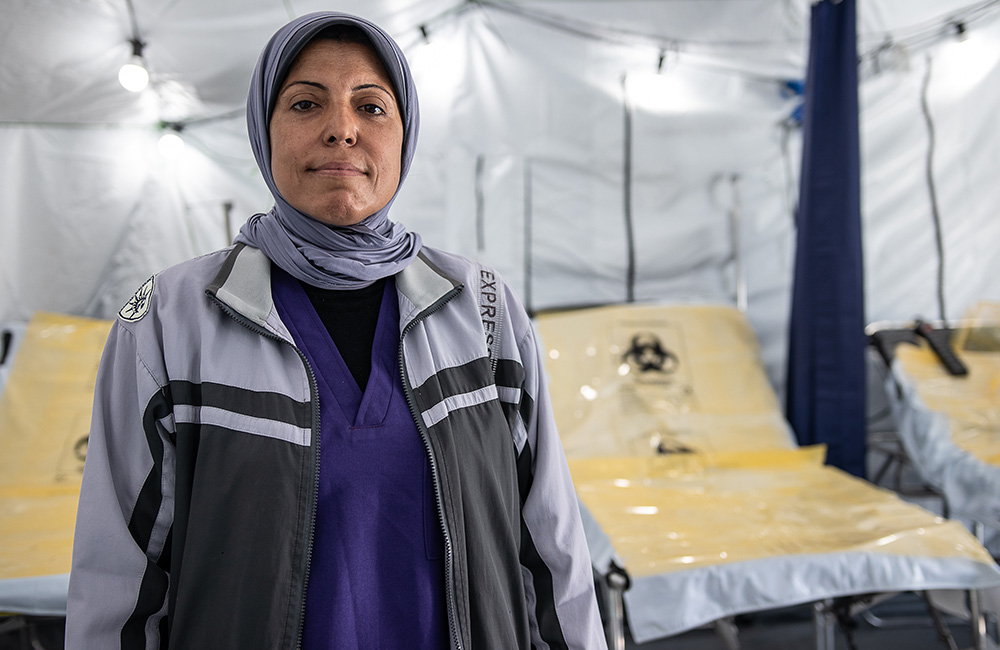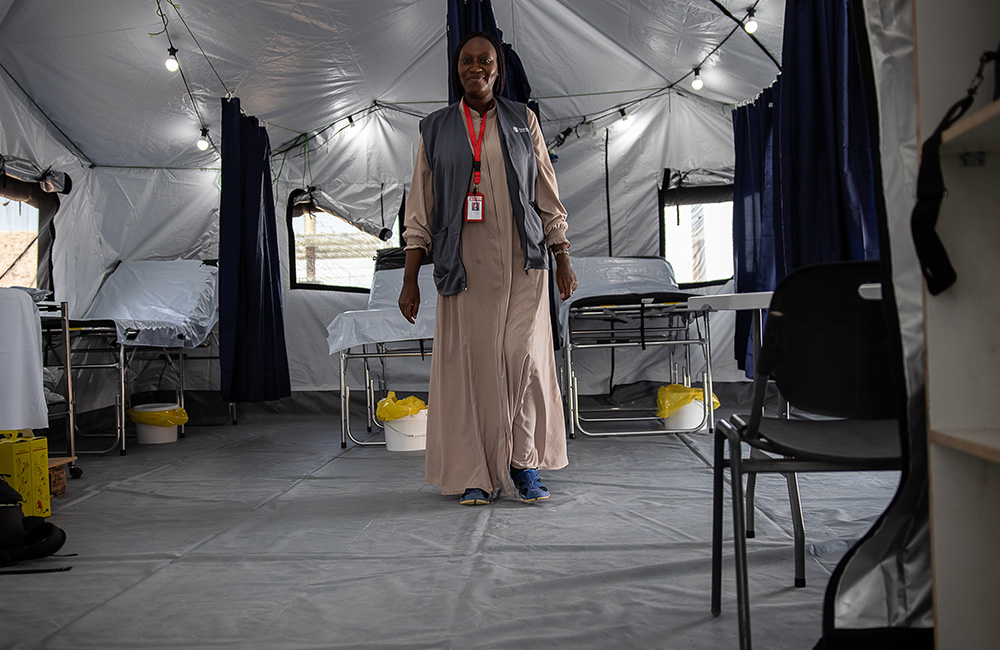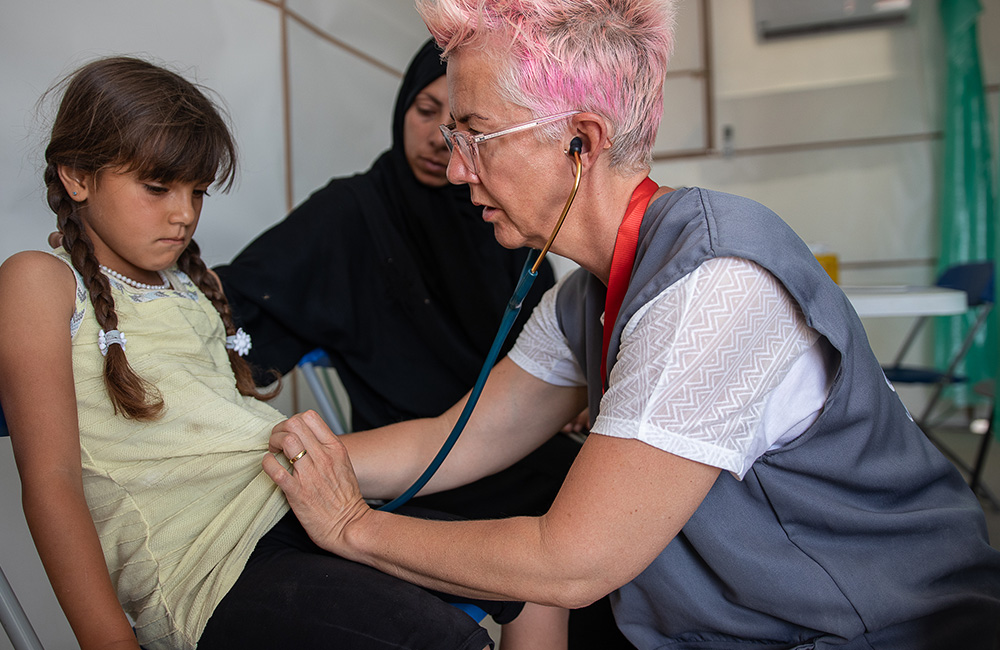What World Humanitarian Day has come to mean as deadly Gaza conflict toll mounts
By Sacha Myers, an Australian Media and Communications Specialist for Save the Children’s Emergency Health Unit.
As I stood at the border about to cross from Egypt into the Gaza Strip in April this year, I looked around at the people who were about to cross with me.
Aid workers from all different walks of life, cultures, religions and ages. While waiting at checkpoints, we exchanged details about our origins, our feelings about working in Gaza, and about the imminent ground incursion into Rafah, the area where most of us were going to be based.
A wave of emotion hit me as I thought about the dedication of these people and the courage it takes to walk into a war zone. But even more so, I thought about my Palestinian colleagues in Gaza who are not only providing aid and support to their communities, but are themselves trying to survive the war, to escape the endless bombardments and to feed their families.
It should be a time to commemorate, not commiserate
It’s been three months since I was standing on that border, and today, on World Humanitarian Day, I should be honouring and celebrating my fellow humanitarians.

Dr Raghda, Save the Children doctor of obstetrics and gynaecology at a maternity unit in Gaza.
But it’s particularly hard to commemorate today because the world is failing aid workers and the people we serve.
With attacks on aid workers in Sudan, the Democratic Republic of Congo, Syria, Yemen, Haiti, Ukraine and many other places, 2024 is on track to be the deadliest year ever for aid workers. Humanitarians have been killed, injured, kidnapped and intimidated at an alarming rate.
Nowhere in the world has been as deadly as Gaza, where at least 270 aid workers have been killed since the war began in October. In fact, the number of aid workers killed in Gaza in the first seven months of the conflict exceeded the number of aid workers killed globally in any year in the past two decades.
Among those was Australian Zomi Frankcom, who was killed in an Israeli airstrike with six of her colleagues from World Central Kitchen when their cars were targeted after they dropped off aid at a warehouse. Their deaths sent shock waves around the world.
Hundreds more Palestinian aid workers have been killed in this war, including Sameh Ewida, a longstanding Save the Children staff member in Gaza who died alongside his entire family when the house he was staying in was hit by an Israeli airstrike. It’s terribly sad that the shocking death toll of Palestinian aid workers has elicited far less concern from the international community.
We can’t keep expecting more to be done with less
Now that I have left Gaza, I still wake up every morning and think of my colleagues. My colleagues who, even with so little, would bring homemade biscuits into the office and share their lunch. My colleagues, who have been forcibly displaced multiple times and live in tents but still turn up to work each day, ready to give so much of their time and energy to help others.

Midwife Ruth Marimbet at the Emergency Health Unit's maternity unit in Al Mawasi, Gaza.
In addition to aid workers being killed, aid convoys, warehouses and distribution sites have also been attacked by Israeli forces while the Government of Israel attempts to disband the United Nations Relief and Works Agency (UNRWA), which would be catastrophic for the millions of Palestinians that depend on its services.
UNRWA reports that have been at least 464 incidents impacting its premises and the people inside them since the beginning of the war. Just last week, an Israeli airstrike on a school reportedly killed more than 100 people, including children – the deadliest attack on a school since last October.
This normalisation of attacks against aid workers and humanitarian infrastructure is terrifying and having devastating consequences for children and families in Gaza.
Attacking aid workers and aid facilities is also a clear violation of International Humanitarian Law. The world’s most powerful governments have legal obligations to uphold Humanitarian Law and ensure that those who break it are held accountable.
And while it’s getting harder and harder for us to safely gain access to the worst-hit communities and to provide desperately needed assistance effectively, a number of major donor countries have recently slashed their foreign aid budgets, which means we have to do more with less.
Australia, thankfully, has not cut funding, and has pledged $72.5 million to the Gaza crisis. Yet our overall aid budget has remained stagnant for years, even as the number of people in need of humanitarian aid worldwide has skyrocketed to almost 300 million children and adults in 2024.
It’s time to act for humanity
Despite the immense challenges, aid workers keep going day after day, working in extremely difficult and dangerous conditions, doing whatever they can to protect and support some of the world’s most vulnerable children.

Save the Children healthcare worker Becky provides medical support for a child and her mother in Gaza.
But we shouldn’t have to work under these conditions. The current failure of those in power to protect humanitarian workers and the people we serve cannot be allowed to continue.
We must see governments, including the Australian Government, condemn loud and clear every attack on aid workers and facilities. Most importantly, they must demand accountability and for the perpetrators to be held accountable.
World Humanitarian Day should be a day to be commemorated. But sadly, it’s become a day to mourn the countless humanitarians who have lost their lives and will continue to be killed if those in power refuse to act for humanity.
Originally published in Women’s Agenda on 19 August 2024.
Photos: Sacha Myers / Save the Children.